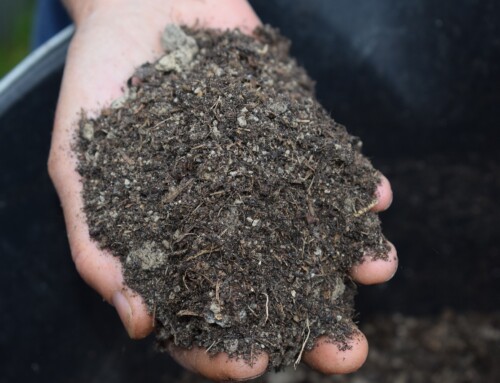As the world seeks effective ways to combat climate change, one of the most promising and natural solutions is found right beneath our feet—compost. While composting is widely recognized for its benefits in soil health and waste reduction, it also plays a powerful role in mitigating climate change through greenhouse gas reduction and carbon sequestration.
By turning organic waste into nutrient-rich compost, we not only divert material from landfills but also contribute to capturing carbon in soils, making composting an essential tool in the global effort to build climate resilience.

The Climate Cost of Organic Waste in Landfills
Every year, millions of tons of food scraps, yard trimmings, and organic materials are sent to landfills. When this organic waste decomposes anaerobically (without oxygen), it produces methane—a greenhouse gas that is over 25 times more potent than carbon dioxide at trapping heat in the atmosphere.
By composting organic waste instead of sending it to landfills, we significantly reduce methane emissions and lower our overall carbon footprint. Composting provides a controlled, aerobic process where organic matter is broken down with oxygen, resulting in far fewer emissions and a much more climate-friendly outcome.
Carbon Sequestration: Capturing Carbon in the Soil
One of the lesser-known but highly impactful benefits of compost is its ability to sequester carbon—meaning it helps capture and store carbon in the soil for long periods.
When applied to soil, compost increases the amount of stable organic matter. This not only improves soil health and fertility but also acts as a carbon sink. Unlike volatile carbon compounds that contribute to atmospheric greenhouse gases, the carbon in compost-enriched soil is locked in place, helping to offset emissions elsewhere.
Studies have shown that soils enriched with organic compost store more carbon than those treated with synthetic fertilizers or left bare. Over time, these practices can contribute to drawing down carbon levels in the atmosphere, particularly when adopted at scale in agriculture and land management.
Healthier Soils, Healthier Planet
Beyond its role in carbon capture, compost enhances soil structure, water retention, and microbial activity—all of which make soil more resilient to the effects of climate change, such as drought and erosion. Healthier soils are better equipped to support robust root systems, reduce runoff, and regulate local temperatures.
Additionally, compost reduces the need for chemical fertilizers, which are energy-intensive to produce and often contribute to nitrous oxide emissions, another potent greenhouse gas. By replacing or supplementing synthetic fertilizers, composting helps curb emissions while enriching the earth naturally.
The Circular Economy in Action
Composting is a perfect example of a circular economy in action—where waste is not discarded but repurposed into something valuable. By closing the loop on organic materials, we reduce dependence on fossil-fuel-based inputs and build a more sustainable and regenerative system.
Companies like Veransa are leading the charge in transforming yard debris and food waste into high-quality compost products like Veransa Prime, produced under strict standards and monitored for both performance and environmental impact.
Scaling the Solution
The benefits of composting are clear, but to make a significant dent in climate change, composting must be adopted more widely and supported by smart policy, infrastructure, and consumer awareness. Municipalities, agricultural producers, landscapers, and individuals all play a role in scaling composting solutions that can both reduce emissions and restore our soils.
When integrated into larger climate strategies—such as regenerative agriculture and green infrastructure—composting becomes a low-cost, high-impact tool for long-term environmental sustainability.
Take Action with Compost
Compost is more than a gardening tool—it’s a climate action strategy. By supporting composting efforts and using high-quality compost in your fields, gardens, or landscapes, you become part of a growing movement to restore soil health, reduce emissions, and protect our planet for future generations.
Learn more about compost’s role in combating climate change at www.veransa.com.


